What have you heard of Detroit?
What the F@$K is happening in Detroit!
You really do see some crazy shit in Detroit. It's everything they say on the news. Whole neighborhoods abandoned; torn down pieces of wood that used to board up broken windows, and half of it's burnt down. You really get a sense of a ghost town when you're the only person driving down a main street or standing all alone in a 3.5 million square foot mega factory, that was built in 1911, and once manufactured Studebakers by the thousands. And that's just one factory. There's others. Many others.
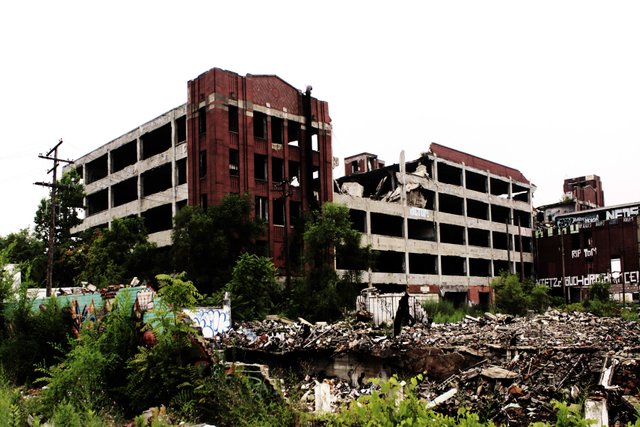
-Packard Plant. Architect: Albert Kann.
The neighborhoods are what's really tragic. Entire neighborhoods abandoned. In some places, it feels like an apocalyptic ghost town. The public school system is in crisis; and it's a disgrace, devastated by decades of corruption. A city left for dead by the American manufacturing industry. Some have even gone as far to say Detroit is a corpse of the American Dream.
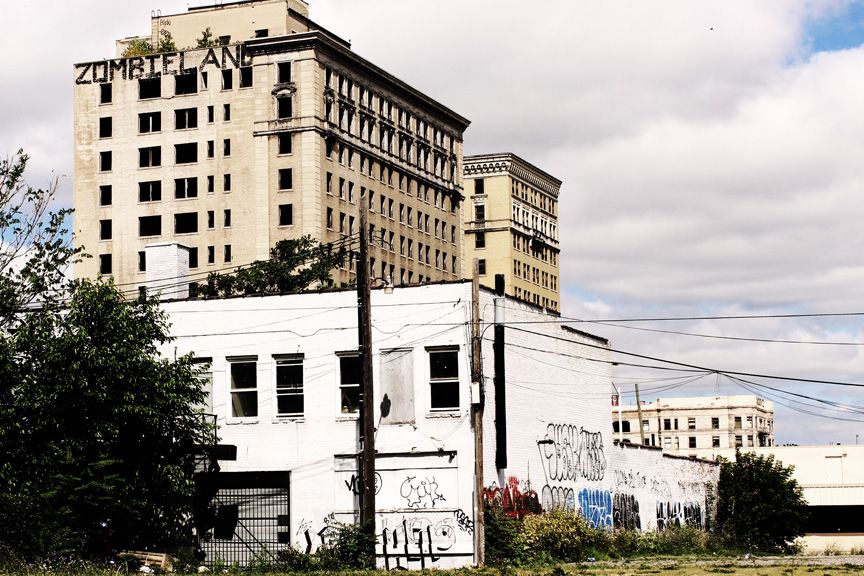
But still, the City of Detroit isn't dead. In fact, its people are using it as a blank slate. This industrial zombie land and poster child of the American decline has began transforming itself into an incredibly fascinating post-industrial city model of the future. A place of new ideas. An urban utopia of agriculture and community enterprise. A great repurposing of a vast and historical infrastructure that was left behind by the wealth of the industrial age and Henry Ford himself. Detroit is a place were someone can turn a few city blocks into an internationally acclaimed outdoor art exhibit that was started to combat neighborhood violence and illegal narcotics. A project on Heidelberg street.
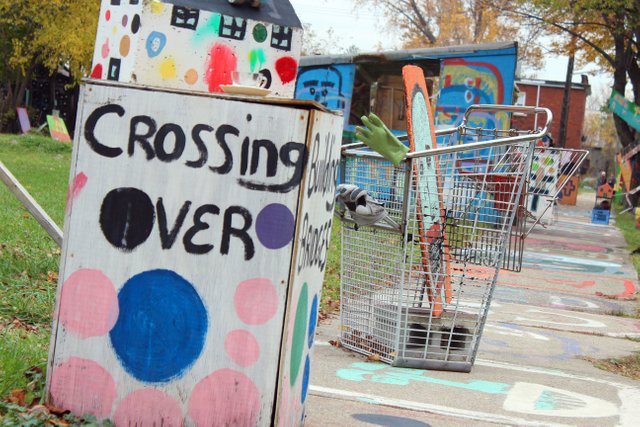
-The Heidelberg Project
The art never left Detroit; it was just the money that left. And as a result, Detroit became the largest U.S. city to go through bankruptcy. That's when all of those beautiful hundred-year-old skyscrapers Downtown were gloomy empty shells of buildings sitting lifeless. You could drive down Woodward Avenue, all the way to 8-Mile Road, and it would seem like whomever painted all this street art everywhere were the only human beings that remained. That's when Detroit was reborn; and that's were we are today.
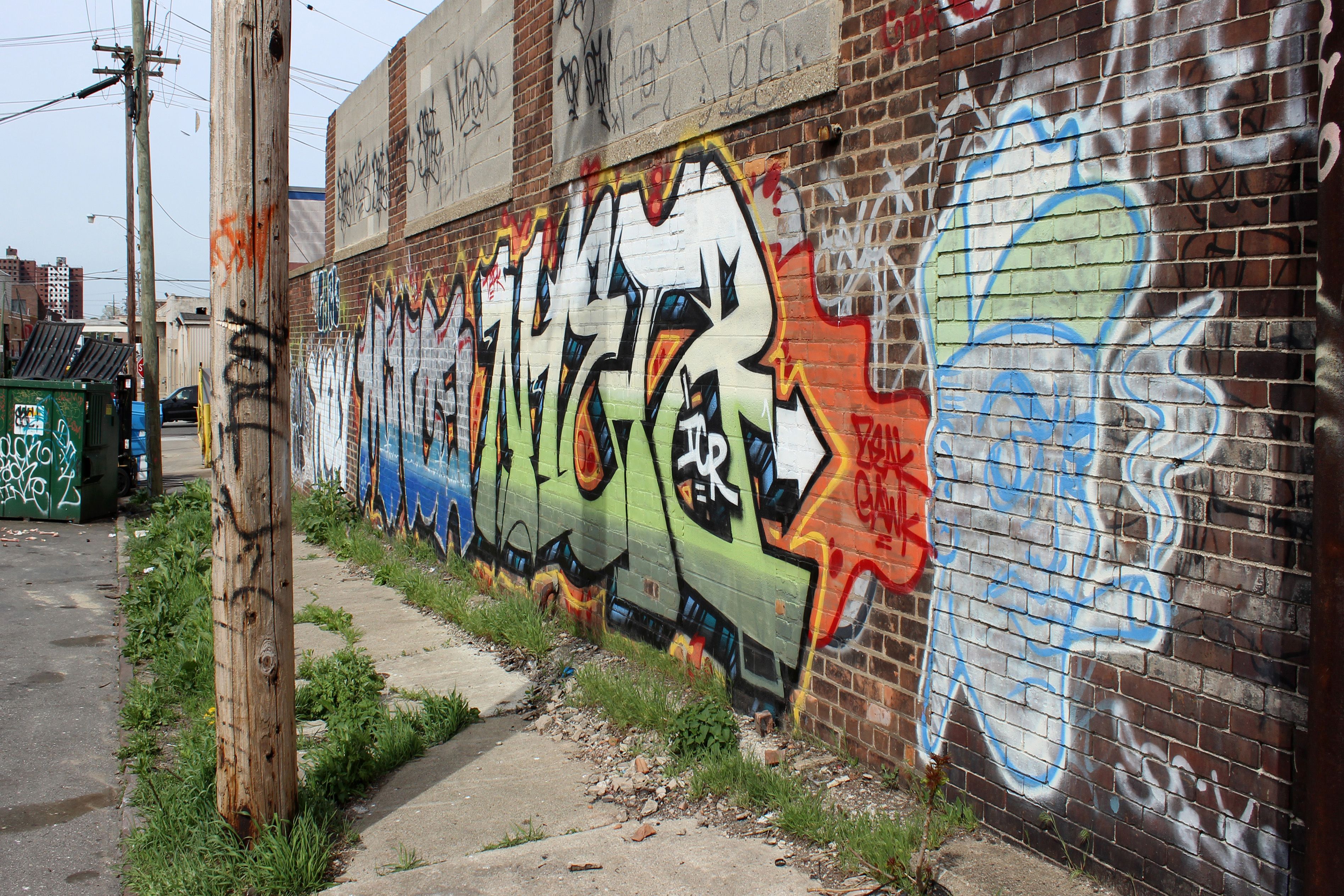
Detroit is a revolutionary city. It's the home of the assembly line. It's the city of cars and the first paved road. It's the birthplace of Berry Gordy and Motown Records. Detroit has been a cultural, financial and manufacturing hub for over a century. A city steeped in history that's still alive within its architecture and atmosphere and spirit. The city has long been a poster child of the industrial age, flocked to by millions of poor workers from around the world. It has since became a vivid warning of the post-industrial decline, and it now has the opportunity to once again to be a global catalyst for revolutionary change. Detroit was once the 4th largest city in the United States; and it was left abandoned by all those companies for whom it was no longer profitable. And all that was left were the people. The people who love this city. Those who couldn't afford to leave. Those who came back. And everyone who sees the potential of this historic city that was left for dead.
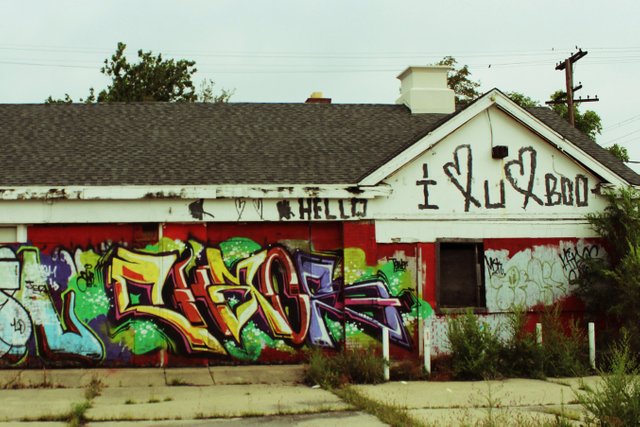
It's those people who saved this city. Or at least, it's those people who are trying to save this city. Although the past continues to have a firm grip on the city, Detroit has proven to be resilient. It has a life of its own. It has a spirit of its own. It has an opportunity to reinvent itself and help change the world. Only time will tell. But it has a shot, and it's worth a visit, and the smart money isn't betting against Detroit anymore.
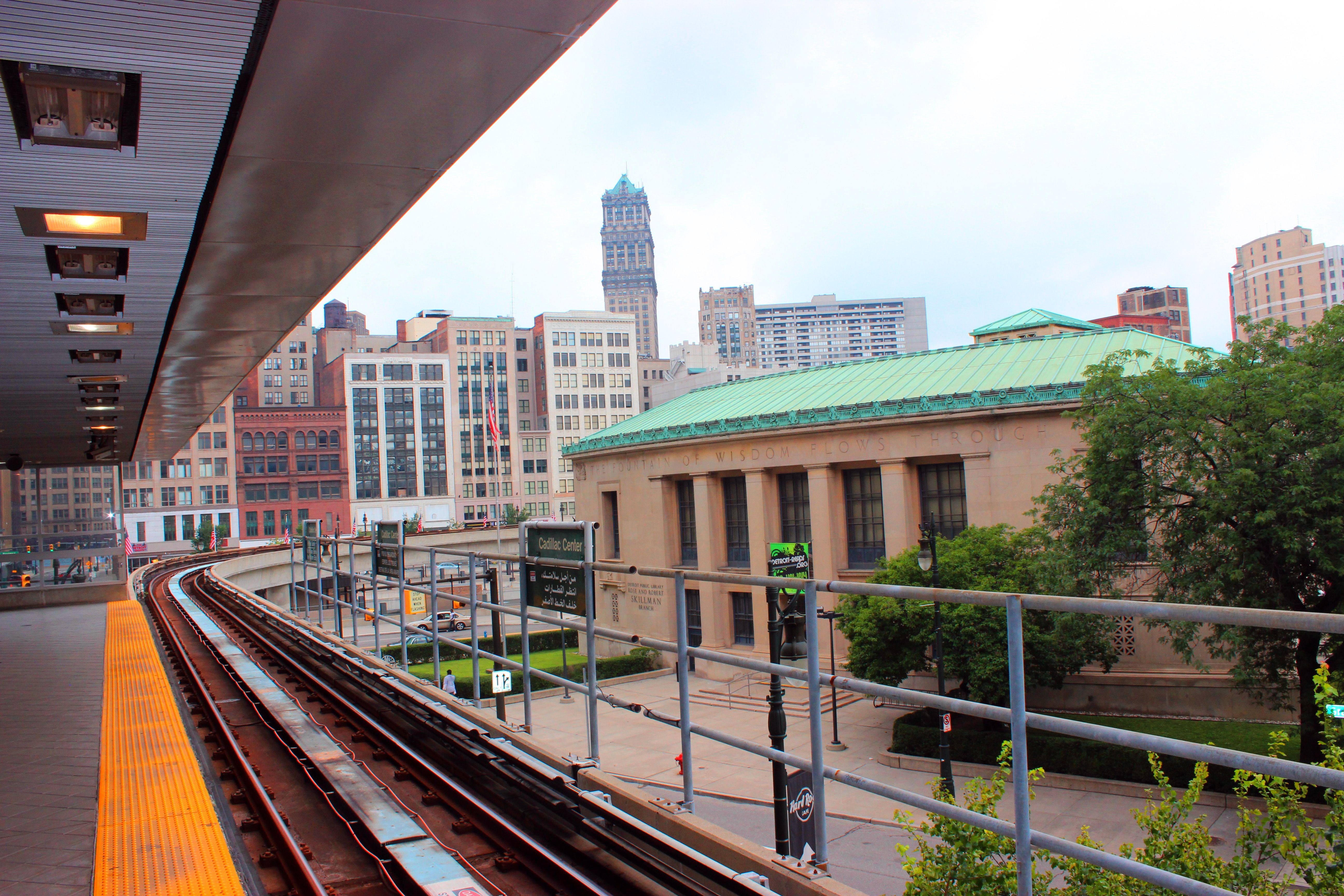
3/20/18
Thank you for visiting Detroit.
Informational Links
packardplantproject.com
heideberg.org